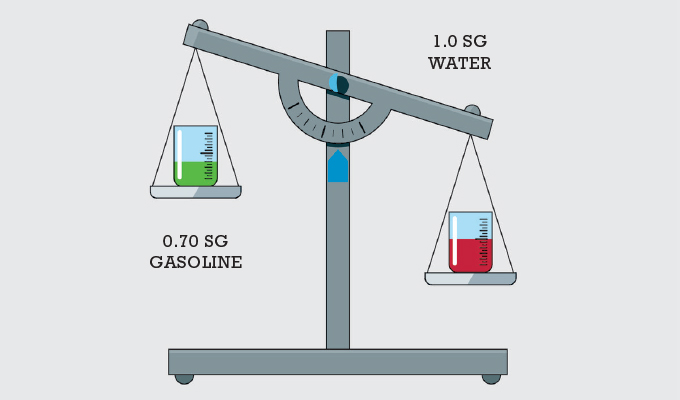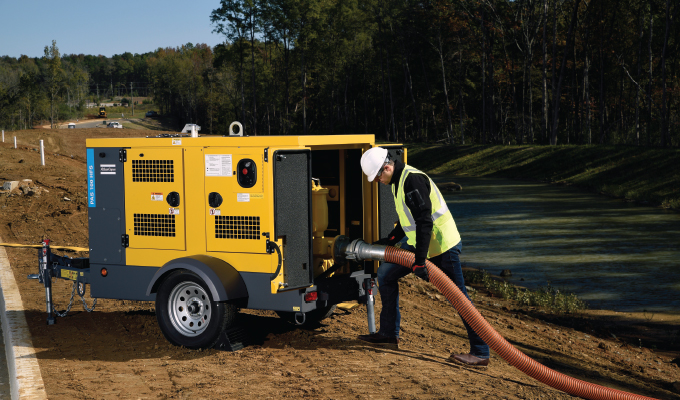When choosing the right pump, one of those factors is the specific gravity of the fluid you intend to move. If it’s water, specific gravity is not a worry. But, if you are working with other types of fluids, you must consider the effect the fluid type will have on your pump’s performance and efficiency, and on its ability to provide you with long, maintenance-free service.
SPECIFIC GRAVITY DEFINED
The density of a substance is defined as its mass per unit volume. Water has a density of 62.43 pounds per cubic foot (or 997 kilograms per cubic meter). The term specific gravity refers to the density of a substance, such as another fluid, relative to the density of water.
Because water is the standard scientists use to determine specific gravity, it has been assigned a specific gravity of 1. Thus, a liquid having a specific gravity of 0.4 will be 60 percent lighter than water, whereas a liquid having a specific gravity of 1.4 will be 40 percent higher than water.
Specific gravity is important when sizing a centrifugal pump because it’s the determining factor in terms of a fluid’s weight. Fluid weight has a direct impact on the amount of work that your pump can perform, which will, in turn, determine factors such as the amount of horsepower needed and the pressure that the pump can develop.

HOW DOES SPECIFIC GRAVITY AFFECT POWER CONSUMPTION AND PRESSURE?
The presence of solids increases the specific gravity and weight of the fluid being moved. The higher the specific gravity, the more motor power is required. For example, wastewater with a specific gravity of 1 will have little impact on motor power, whereas slurries or sludges with a higher specific density and weight will require more motor power. In fact, the increase or decrease in power consumed is directly proportional to the specific gravity of the liquid being moved.
The pump’s pressure will change in direct proportion to the specific gravity of the fluid to be moved. While a pump may develop about 50 psi (pounds per square inch) while pumping water, when pumping a fluid with a specific gravity of 1.2, it will only develop pressure of 41.7 psi. We get this figure by dividing 50 by 1.2. Specific gravity is a relevant consideration when you are selecting a pump to develop a given pressure.
WHAT’S THE BEST ADVICE?
Seek professional help when choosing a dewatering pump. That way, you can be certain that the equipment you are using aligns with the needs of your application. For example, the professionals at Atlas Copco are experts in pumps and the myriad number of applications to which they can be assigned. Hopefully, you now have a better idea of what questions you should ask yourself. You can get the answers you need from an Atlas Copco pump equipment expert.
FOR MORE INFORMATION
Andreas Neufeld, Atlas Copco Power Technique’s pumps product marketing manager, started his pumps career in technical service, working through applications with customers and now manages the pumps portfolio for the North American region. Atlas Copco’s Power Technique business area offers a core portfolio of products including portable compressors, generators, light towers, and pumps along with dedicated construction products including handheld pneumatic, electric, and hydraulic tools and compaction and concrete products. In addition, it provides products and customized solutions for drilling, oil and gas, and geothermal exploration applications, among many others.
For more information, visit www.atlascopco.com/en-us/construction-equipment.
MODERN PUMPING TODAY, August 2021
Did you enjoy this article?
Subscribe to the FREE Digital Edition of Modern Pumping Today Magazine!



